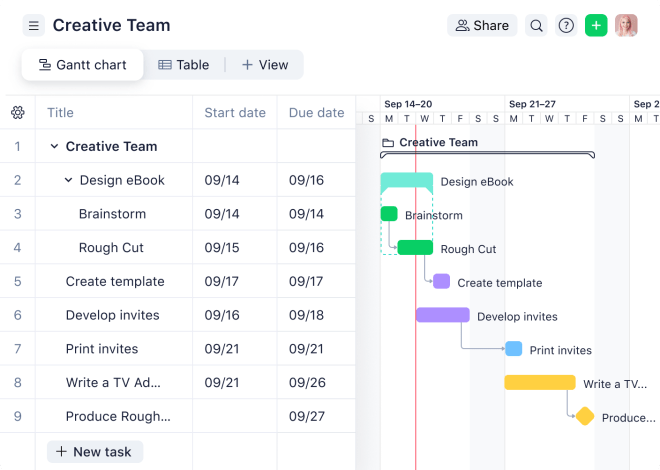AlphaGo: A Technological Marvel and the Future of AI
The ancient game of Go, a testament to human ingenuity and strategic depth, is poised to witness a clash of titans. This isn’t just another tournament; it’s a symbolic battle between human intellect and artificial intelligence. The world holds its breath as AlphaGo, the groundbreaking AI developed by DeepMind, prepares to face off against the reigning champion in a highly anticipated match held in the heart of China. This event transcends the realm of simple competition; it’s a pivotal moment in the ongoing dialogue about the future of artificial intelligence and its relationship with humanity itself. The stakes are high, the tension palpable, and the implications far-reaching.
The Genesis of AlphaGo: A Technological Marvel
AlphaGo’s journey began not as a sentient being, but as a complex algorithm designed to master the intricate nuances of Go. Unlike chess, Go’s vast search space presents an almost insurmountable challenge for traditional computational approaches. DeepMind’s team ingeniously combined machine learning techniques with advanced neural networks to create a system capable of not only playing Go but also learning and improving through self-play. This revolutionary approach allowed AlphaGo to surpass human understanding of the game, identifying strategic patterns and subtleties previously unseen.
The development of AlphaGo was a significant milestone in artificial intelligence. It demonstrated that AI could master complex games requiring intuition, strategy, and creativity, previously considered uniquely human domains. Its victories over professional Go players have been nothing short of stunning, showcasing the incredible potential of AI to solve seemingly intractable problems. The technology behind AlphaGo has far-reaching implications, extending beyond the realm of games to fields like medicine, finance, and scientific research.
Deep Learning and Neural Networks: The Pillars of AlphaGo’s Success
At the core of AlphaGo’s impressive capabilities lie deep learning and neural networks. These technologies allow the AI to analyze vast amounts of data, identifying complex patterns and relationships that would be impossible for humans to detect. The neural networks, inspired by the structure of the human brain, enable AlphaGo to learn from its experiences, adapting its strategies and improving its performance over time. This continuous learning process is a crucial aspect of AlphaGo’s success, allowing it to overcome even the most skilled human opponents.
The sheer computational power required to train AlphaGo is also remarkable. DeepMind utilized massive datasets and powerful computer systems to train the AI, allowing it to play millions of games against itself and refine its strategies. This iterative process of learning and improvement has resulted in an AI system that consistently outperforms human players. The advancements in deep learning and neural networks demonstrated by AlphaGo are reshaping the landscape of artificial intelligence research.
Go: More Than Just a Game
Go, a game with a history spanning millennia, holds a unique position in the world of strategy games. Originating in ancient China, its simplicity of rules belies its immense complexity. The seemingly straightforward rules give rise to a virtually infinite number of possible game states, making it an exceptionally challenging game to master. For centuries, Go has been a source of intellectual stimulation and strategic exploration for millions of players worldwide.
Beyond its strategic depth, Go has a rich cultural significance, particularly in East Asia. It’s not merely a game; it’s a form of art, a reflection of philosophical principles, and a source of personal cultivation. The game encourages contemplation, strategic thinking, and an understanding of subtle nuances. The upcoming match between AlphaGo and the world’s best Go player is therefore not just a technological milestone but also a significant cultural event.
The Cultural Significance of the Match
The choice of China as the location for this pivotal match adds another layer of significance. Go’s origins lie in China, and the country boasts a rich tradition of Go mastery. The match is not just a competition between human and machine; it’s a meeting of East and West, a dialogue between ancient tradition and cutting-edge technology. This cultural context elevates the event beyond a simple game, making it a truly global spectacle.
The implications of AlphaGo’s potential victory are far-reaching. It could signal a paradigm shift in our understanding of artificial intelligence, highlighting its potential to surpass human capabilities in complex cognitive tasks. On the other hand, a human victory would reaffirm the enduring power of human ingenuity and intuition. Regardless of the outcome, the match promises to be a captivating event, full of drama and suspense.
The Human Element: Facing the Unpredictable
While AlphaGo’s computational power is undeniable, the human element remains a crucial factor. The world’s best Go player brings to the table years of experience, intuition, and an understanding of the game that goes beyond mere calculation. They possess a capacity for creativity and adaptation that is difficult, if not impossible, to replicate in an AI system.
The unpredictability of human behavior is a significant advantage for the human player. AlphaGo operates within the confines of its programming, while a human player can deviate from established strategies, surprise their opponent, and capitalize on unexpected opportunities. This capacity for improvisation is a key element of human strategic thinking, and it could prove crucial in the upcoming match.
Intuition vs. Calculation: A Clash of Styles
The match between AlphaGo and the human champion will be a fascinating study in contrasting styles. AlphaGo will rely on its vast computational power, analyzing millions of possibilities and selecting the optimal move based on statistical probabilities. The human player, on the other hand, will likely rely on intuition, experience, and an understanding of the game’s subtle nuances. This clash of styles promises a captivating spectacle, offering a unique insight into the strengths and weaknesses of both human and artificial intelligence.
The psychological aspect of the competition should also not be overlooked. The pressure of playing against a world-renowned AI system is immense. The human player’s ability to manage this pressure and maintain focus will be a significant factor in determining the outcome. The psychological battle between human and machine adds another layer of complexity to this already compelling event.
Beyond the Game: The Implications for the Future
The AlphaGo versus human champion match is more than just a sporting event; it’s a landmark moment in the history of artificial intelligence. The outcome will have profound implications for the future of AI development, shaping the direction of research and influencing public perception. The advancements in AI technology demonstrated by AlphaGo have already begun to impact various fields, from medicine to finance.
The development of AI systems capable of surpassing human capabilities in complex tasks raises important ethical questions. We need to carefully consider the potential risks and benefits of advanced AI, ensuring that these technologies are developed and used responsibly. The AlphaGo match serves as a timely reminder of the importance of ethical considerations in the field of artificial intelligence. We must strive to harness the power of AI for the betterment of humanity, while mitigating the potential risks.
- Ethical Considerations in AI Development: Ensuring responsible development and deployment of AI technology.
- Job Displacement and Economic Impact: Addressing the potential impact of AI on employment.
- AI Safety and Security: Preventing the misuse of AI and ensuring its safety.
- AI Bias and Fairness: Minimizing biases in AI systems and ensuring fair outcomes.
The Future of AI and Human Collaboration
Despite the competitive nature of the AlphaGo match, the future of AI likely lies not in replacing human intelligence but in augmenting it. AI systems like AlphaGo can be valuable tools for assisting humans in various tasks, improving efficiency, and unlocking new possibilities. The collaboration between humans and AI has the potential to lead to significant breakthroughs in many fields.
Imagine AI systems working alongside medical professionals to diagnose diseases more accurately, or assisting scientists in analyzing complex data to accelerate scientific discovery. The possibilities are vast and exciting. The AlphaGo match, while a contest between human and machine, ultimately underscores the potential for a future where humans and AI work together to achieve common goals.
- AI-assisted healthcare: Improved diagnostics and personalized medicine.
- AI-driven scientific research: Accelerating breakthroughs in various fields.
- AI in education: Personalized learning experiences and improved access to education.
- AI for environmental sustainability: Developing solutions for climate change and resource management.
This epic clash in China represents a pivotal moment in the ongoing narrative of human ingenuity versus artificial intelligence. The match’s outcome will undoubtedly shape future conversations, research, and development in the field of AI. The anticipation is palpable, and the world watches with bated breath. The lessons learned, regardless of the victor, will be invaluable as we navigate the increasingly complex relationship between humanity and artificial intelligence. This event will undoubtedly leave an indelible mark on our understanding of both the potential and the challenges inherent in our pursuit of technological advancement. The future of AI hinges on our ability to harness its power responsibly and ethically, ensuring a future where human and artificial intelligence coexist and collaborate for the benefit of all. The implications are profound, and the story is only just beginning.



